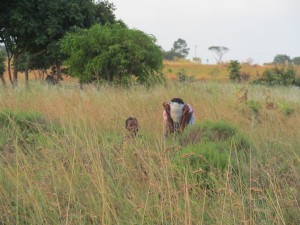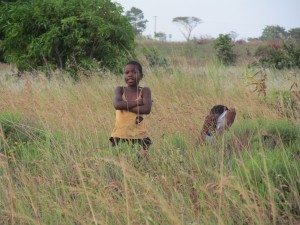Last year while jogging past the taxi rank in Stellenbosch, the student town of the Cape Winelands, I noticed an old man standing alone on the sidewalk. I stopped in front of him because I could see his lips moving, and since no-one else was around, it seemed like he was talking to me. I leaned in to make sense of his mumbles. “I don’t want to live anymore,” he said loudly, looking at me, but talking to no-one in particular. As tears filled his eyes I wondered how many times he had said that before.
I felt my body weaken as I stared at him, wide-eyed. His dirty clothes were torn and saggy with tiny holes and tears. His hair was grey and dirty and his beard grew wild. His face was pink, yet dull and between his sunken eyes and cheekbones, spiderwebs weaved years of poverty together. To this day I still carry the guilt of not responding.
Stellenbosch is one of those must-see places in South Africa. But stay too long, and you might soon find yourself in an inexplicable, undiagnosed state of Schizophrenia. Here we are surrounded by breathtaking mountains, we breathe fresh air daily, we probably have the best wine in the world and our acorn trees are evergreen, but to say that the region is heavenly would be inaccurate.
At first I thought it was. I was won over by the fact that the beach is just an exceptionally scenic 20 minute drive away, past lush wine lands. Almost everyone and everything in Stellenbosch is remarkably beautiful. The most common language is Afrikaans and the town is culturally vibrant.
For a small town girl like me who had to study for three years in the city, Stellenbosch immediately felt like home. Unfortunately it takes only about a month of waking up next to a township (I live on the corner of Adam Tas and Bird Street – right across from Kayamandi township), to be disillusioned.
In Stellenbosch, as most South African towns, you’ll find a case of extreme poverty versus extreme wealth. It’s hard to believe that in such a relatively small place there can be such radical opposites. On the one side, you have tourists and wine tasters who attend local bands’ CD launches and art gallery exhibitions – mostly blissfully unaware of the poverty that surrounds Stellenbosch.
On the other side of town, there are the residents who survive by selling cheap fish and fruit and vegetables or work on wine farms. These people live in areas like Kayamandi and Cloetesville. Some of them take care of their families through begging or guarding cars at shopping centres. Even though it sounds similar to any other town in South Africa, the inequality in Stellenbosch (considering its size) is frightening.
You can find bergies – the local term used for the homeless and for beggars – all around town. The class differences in Stellenbosch go hand in hand with race, and the majority of these beggars are coloured (a politically correct term in South Africa). Among the residents of Kayamandi and workers on surrounding wine farms, there is a serious problem with alcohol abuse and the use of tik. History reveals that workers used to be compensated partly with a salary and partly with alcohol, producing generations of alcohol abusers.
According to Eric Samanga, one of the residents of Stellenbosch’s night shelter, it is difficult to find work in Stellenbosch, unless you know someone who can help you out. “I moved from the Eastern Cape to Kayamandi in search of a job. In the first week my wallet, ID and cell phone was stolen.” Samanga now tries to find work or beg for food in the richer Stellenbosch areas. “People mostly swear at me and shout at me to leave. They don’t even give me a chance to explain,” says Samanga.
A Pick n Pay employee, Fezeka Ndabagaye believes a lack of jobs is the main cause of poverty in Stellenbosch. “People around here are fairly educated, but they are unskilled. Nobody wants to hire you if you have no work experience,” Ndabagaye says. At the same time a so-called bergie, Samuel Robbertse says he is jobless because of foreigners who provide cheap labour. “People come from other countries and are prepared to work for R40 a day. How are we supposed to compete with that?”
In my country we complain about car guards asking for money when they only watch over our cars for an hour. “How will they defend robbers anyhow?” we think. We complain about homeless children guilt-tripping us into giving them small change around every corner. We are outraged that these people beg because “they should work hard like the rest of us do.” And to ease our conscience, we believe theories such as “They probably work for syndicates and are much richer than we are by now” or “My friend says the other day she saw a beggar getting into his Mercedes when he went home, there’s no way I’m giving him money!” We tell ourselves whatever will get us through the day, because facing the growing poverty crisis is just too overwhelming.
In Stellenbosch we live in heaven, but we live in hell. The poor aren’t going anywhere, (except 30 kilometres per taxi home and back) and there’s never enough wine to keep our hearts blind. It takes such a large amount of energy to remind ourselves that the poor are human beings, that by the time they ask our help, we are exhausted. Poverty is one of the most complex issues humanity has ever faced, but at least we have the power to face it together. Right?
*Another version of this post was published in Financial Mail – Campus in 2010.



